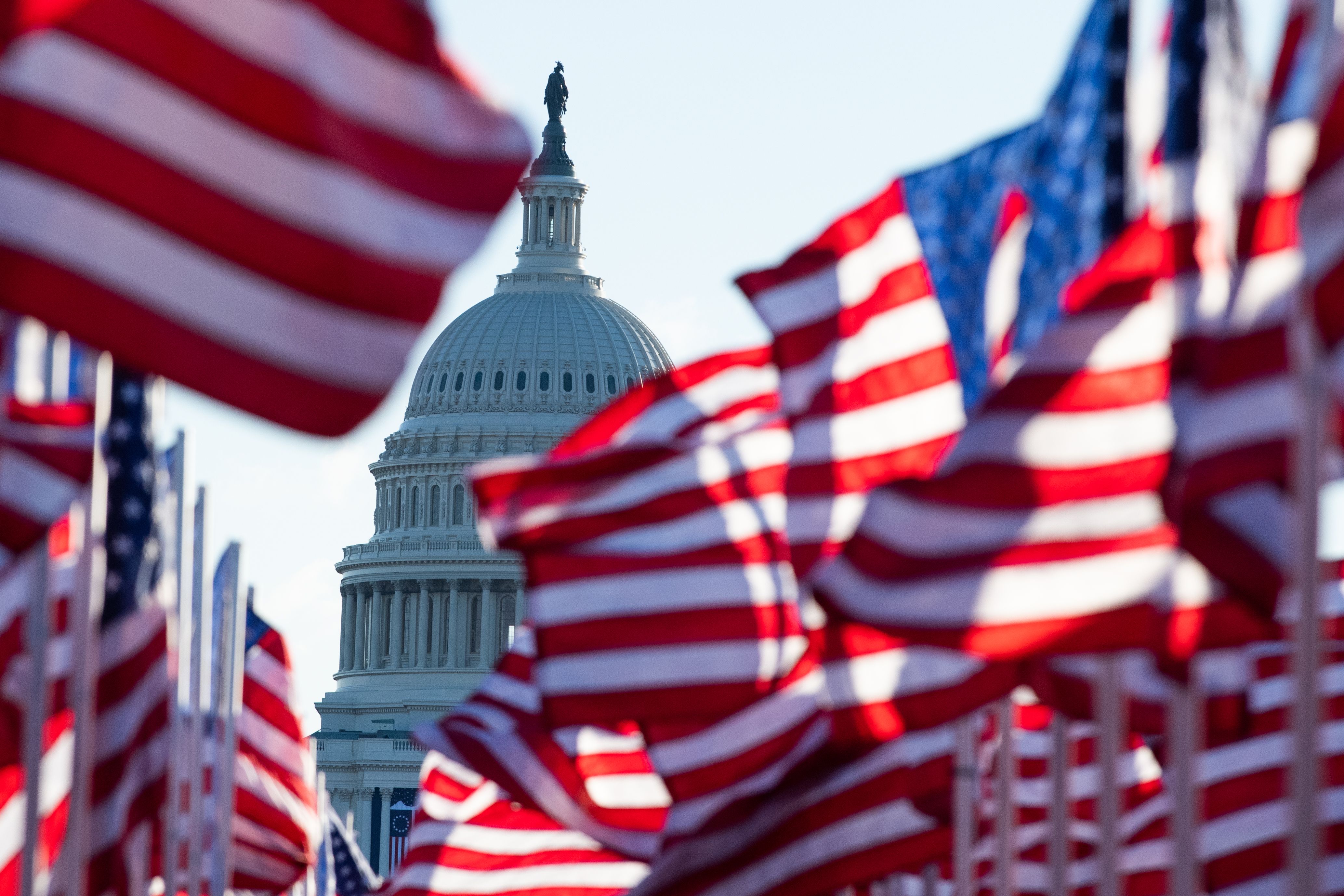Seamus Heaney perfectly encapsulated Joe Biden’s inaugural goal. The incoming president of the United States, who often uses the Irish author’s poetry to describe his own life experiences, must create the moment when “hope and history rhyme.”
The United States needs inspiration after a four-year presidency characterized by division, spite and attacks on its core values. In his inaugural speech on Wednesday, Biden sympathized with the pain of the country he now leads over the pandemic that is hitting him and spoke with brutal honesty of the road ahead, things his predecessor despised.
Your task is now much more daunting than it was during the campaign. On the eve of Biden’s inauguration, the death toll from covid-19 reached 400,000 in the country. The launch of the vaccine in the country is a disaster. New virus mutations spread. And then there is the growing problem of the nationalist insurgency.
By laying his hand on the Bible and taking the oath, Biden received the most poisoned inheritance since Franklin Roosevelt, who took office in 1933 amid the Great Depression.
FDR’s contagious optimism and his inaugural slogan, “The Only Thing to Be Afraid of is Fear Itself” paved the way for America to emerge from the crisis. His years battling crippling polio gave him a fortitude of steel, empathy for the dispossessed, and an unwavering faith in better times, even in times of desperation.
Eighty-eight years later, another new president will attempt to revive a nation stricken by pain and national division, with a character forged also by personal tragedies: the deaths of his first wife, his young daughter and his adult son Beau. “I know these are dark times, but there is always light,” Biden said through tears as he left Delaware for Washington to fulfill the mission of his life.
“We must not be enemies”
Looking from the Capitol into the vast interior of the United States, he found not a large crowd, but a forest of flags representing all the Americans who could not be on the National Mall to witness the start of his presidency.
That decoration, with thousands of stars and stripes, and flags of states and territories, is a way to distract from the pandemic and the insurrection encouraged by Trump that made a traditional inauguration impossible.
Regardless, the massive congregations on the Mall are a relatively recent tradition. The first president, George Washington, took the inaugural oath of office in 1789 at Federal Hall in New York, then the capital of the United States.
Photographs from then show the first inauguration of President Abraham Lincoln in 1861, when the United States was torn apart before the Civil War. With great concern for safety, the honest Abe was sworn in on the East Front of the Capitol, as was the norm then, under the dome of the building, still unfinished.
“We are not enemies, but friends. We must not be enemies. Even if passion has strained our bonds of affection, it must not break them, “said Lincoln, an apt warning to the divided nation that Biden must lead.
In 1945, a sick and exhausted FDR, who was months away from dying, reasoned that wartime is not a party time. The soldiers who should have marched in their fourth inaugural parade were fighting in Europe and Asia. So, like Biden, FDR urged his followers not to flock to Washington; rather, he delivered his speech from the South Portico of the White House.
At least Biden got out. Celebrations of Ronald Reagan’s new term had to be moved to the Capitol Rotunda in 1985 due to freezing weather.
Washington’s cold is no joke.
President William Henry Harrison died of pneumonia just 32 days after taking office. His passing was perhaps prompted by his inaugural address, which lasted an hour and 45 minutes in the cold.

